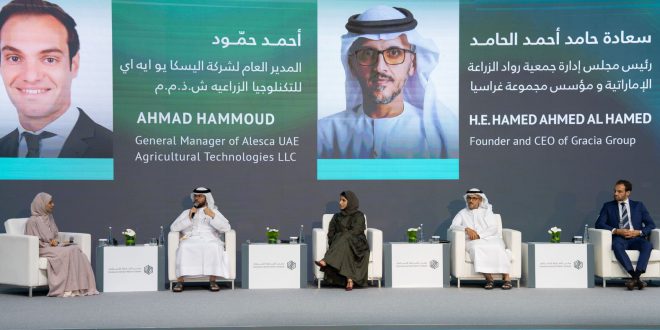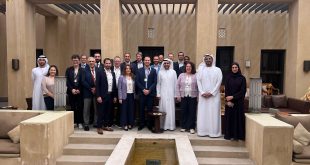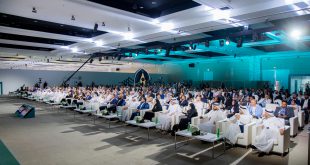Experts discussed the importance of smart solutions and their role in ensuring food security, highlighting that innovative agricultural technologies can transform production and reduce dependency on imports. This came during a session titled ‘Enhancing Food Security Through Smart Solutions’ as part of the 7th edition of the Sharjah Investment Forum, organised by the Sharjah FDI Office (Invest in Sharjah), taking place on 18-19 September at the Al Jawaher Reception and Convention Centre in Sharjah, under the theme ‘Future Visions for Smart Economies.’
The session featured several speakers, including H.E. Dr. Eng. Khalifa Alteneiji, Chairman of the Department of Agriculture and Livestock in Sharjah; H.E. Sara Al Nuaimi, CEO of the Sharjah Entrepreneurship Center (Sheraa); H.E. Hamed Al Hamed, Founder and CEO of Gracia Group, an innovative model of future farming aimed at transforming the agricultural sector; and Ahmed Hammoud, UAE General Manager of Alesca Technologies, an agritech company that builds turnkey vertical farms and precision ag solutions.
Sharjah’s successful wheat production with advanced agritech
H.E. Dr. Alteneiji began the session by sharing Sharjah’s success story in wheat production, a critical example of how smart solutions can enhance food security. “We were once heavily reliant on imports, but today, thanks to advanced technology, we have surpassed global standards by producing wheat locally. Our wheat is heat-resistant, high-yield, high in protein, and consumes less water — proving that sustainable solutions can thrive even in challenging climates,” he stated.
Citing the example of Brazil’s successful transition towards self-sufficiency in local wheat production, which increased to 80% in 2022-23, he stressed that similar efforts in the UAE are crucial to overcome environmental challenges and ensure long-term food security.
Sheraa’s role in empowering agritech startups
H.E. Al Nuaimi, CEO of Sheraa, highlighted the importance of fostering entrepreneurship to advance smart solutions for food security. “At Sheraa, we have incubated over 180 ventures, with more than 20 focused on sustainable agriculture and irrigation technologies. We are actively providing support, investments, and creating networks to help these innovators grow,” she remarked.
Highlighting Sheraa’s commitment to attracting international agritech companies to the UAE, offering them the opportunity to relocate and scale their solutions within the region, she said: “By promoting innovation locally and globally, we are directly tackling the challenge of food security.” Expressing optimism about the future, she said, “The National Strategy for Food Security aims to make the UAE the world’s best in the Global Food Security Index by 2051, of which a key objective is 50% local production by then. Initiatives like Sheraa’s incubator programme are paving the way towards this goal.”
Local solutions for agriculture challenges
Discussing the role of homegrown solutions, H.E. Al Hamed of Gracia Group, shared insights into how his company has addressed the region’s agricultural challenges. “Gracia Group was born out of the need to find solutions for water scarcity and difficult farming conditions,” he said. “We have developed integrated systems that cater to the UAE’s unique environment, from advanced irrigation techniques to sustainable crop management.”
Al Hamed also revealed that Gracia Group operates as a 360-degree farming entity, making significant contributions to local food production. Emphasising the crucial role played by local leadership in agriculture, he noted, “We can either import technology solutions or create our own, adapting them to suit our local needs and environment. That is exactly what we are doing, to ensure food security from within.”
Vertical farming: Future of sustainable agriculture
Hammoud of Alesca Technologies focused on the revolutionary potential of vertical farming. “Since 2013, we have been working on perfecting vertical farming solutions that can be integrated into urban settings, reducing the carbon footprint and providing fresh produce directly to residents,” Hammoud explained. By embracing smart technologies, “we can reduce the cost of vegetables, increase variety and enhance profitability while maintaining sustainability.”
Technology plays a key role in reducing labour costs and improving efficiency. “Our farms, located in places like Sharjah Sustainable City, are fully automated and can be managed remotely. This means fresh fruits and vegetables are grown in the heart of urban communities, redefining the concept of farm-to-table with little carbon footprint.”






